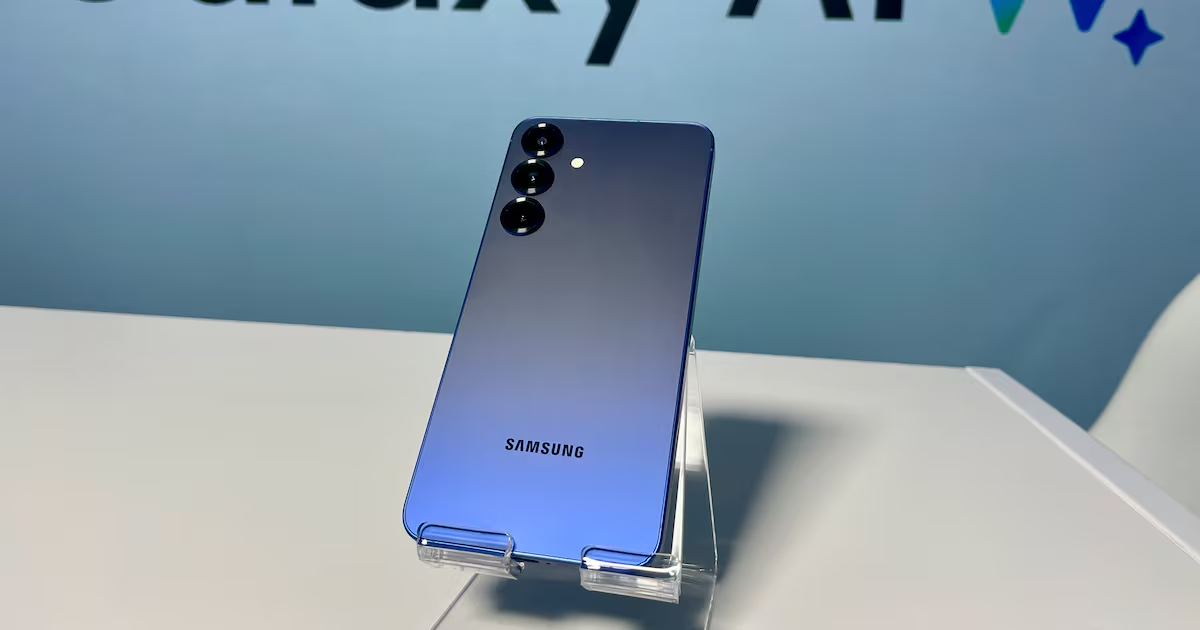
Samsung aims to turn next generation of Galaxy smartphones into AI companions
Samsung, a global leader in the AI companions, has long been at the forefront of technological innovation. From introducing cutting-edge display technology to pioneering foldable smartphones, the South Korean tech giant has consistently pushed the boundaries of what is possible with mobile devices. With its latest ambitious project, Samsung is setting its sights on the future of artificial intelligence (AI) and how it can seamlessly integrate into daily life through the next generation of Galaxy smartphones.
Table of Contents
ToggleSamsung’s vision is to transform its Galaxy smartphones into true AI companions—devices that not only perform tasks efficiently but also understand and adapt to users’ needs, preferences, and environments in real-time. By embedding advanced AI capabilities into its smartphones, Samsung aims to offer an intuitive, personalized experience that could redefine how people interact with their devices. Let’s explore how Samsung plans to achieve this, the technology behind it, and the potential impact on users worldwide.
The Vision: AI-Powered Personal Assistants
The idea of AI companions is not entirely new—virtual assistants like Siri, Google Assistant, and Amazon’s Alexa have become commonplace. However, Samsung’s ambition goes beyond simply creating voice-activated assistants. The company envisions a Galaxy smartphone that functions as a true AI companion, providing personalized, anticipatory services to users.
Samsung aims to integrate AI so deeply into its devices that smartphones will no longer be just tools to interact with, but intelligent entities that learn from their users. This would mean an experience that evolves over time, as the AI learns about habits, preferences, and behavioral patterns. For instance, instead of merely responding to commands, the AI could predict what actions the user might want to take next based on context, personal data, and even environmental factors.
A Seamless, Personalized Experience
One of the key challenges Samsung faces in turning its smartphones into AI companions is the need for deep personalization. To make this a reality, Samsung plans to embed advanced AI algorithms that can analyze data from multiple sources to create a tailored experience for each individual.
For example, AI could adjust the smartphone’s settings automatically based on the user’s location, time of day, and personal habits. If a user often listens to music during their commute, the AI could preemptively suggest playlists or podcasts when they connect to their car’s Bluetooth. Similarly, if a user is traveling for business, the AI could adjust the phone’s notifications and settings to ensure it aligns with the user’s professional schedule.
Moreover, Samsung is looking to integrate AI capabilities into the camera system of its smartphones. Through machine learning, the camera could automatically adjust settings based on the scene, providing users with optimal photos without needing to manually tweak any settings. Over time, the AI would learn the user’s style, providing even more tailored suggestions.
Integrating AI with Samsung’s Ecosystem
Samsung’s AI ambitions don’t stop at smartphones; the company is working to integrate its devices into a broader ecosystem that includes smart TVs, wearables, and home appliances. By making its smartphones the central hub of this ecosystem, Samsung aims to create a truly interconnected experience where AI can provide a seamless flow of information and control.
For instance, a user could ask their Galaxy smartphone to dim the lights, adjust the thermostat, or play their favorite show on a Samsung TV—all through AI-driven commands. The AI companion would learn the user’s preferences over time and anticipate needs, making the experience feel less like a series of commands and more like a natural conversation.
With this level of integration, Samsung aims to offer a truly smart home experience where all devices are synchronized and intelligent. The smartphone would act as a control center, but it would also adapt to the user’s routine, providing context-aware suggestions.
The Role of Samsung’s Exynos Chips and AI Hardware
Central to Samsung’s plans to make its smartphones AI companions is the company’s development of powerful AI hardware. The Exynos chipsets, Samsung’s in-house processors, play a critical role in this ambition. In recent years, Samsung has placed a strong emphasis on improving the AI capabilities of its Exynos chips, incorporating dedicated AI processing units designed to handle tasks like facial recognition, object detection, and natural language processing.
The inclusion of AI-specific hardware ensures that Samsung’s smartphones can handle real-time machine learning and deep learning tasks without overburdening the main processor. This enables the phone to continuously learn and adapt while maintaining high performance. Samsung has already demonstrated the potential of these chips in previous Galaxy models, where AI features such as scene recognition in the camera system and battery optimization have improved the user experience.
As AI becomes more integrated into smartphones, having powerful, efficient AI hardware will be crucial for ensuring smooth, responsive interactions. Samsung’s ongoing investment in Exynos chips indicates its commitment to making AI a central component of the Galaxy smartphone experience.
AI and Privacy Concerns: A Delicate Balance
As Samsung works to integrate AI into its smartphones, it must also address the growing concerns surrounding privacy and data security. With AI’s reliance on personal data to provide a tailored experience, there is a fine line between convenience and the potential for misuse.
Samsung has committed to ensuring that its AI-driven features respect user privacy. The company has implemented robust privacy safeguards, such as local data processing, where sensitive information is stored and processed on the device itself, rather than in the cloud. This minimizes the risk of data being exposed or compromised.
Furthermore, Samsung is likely to provide users with greater transparency and control over their data. Features like opt-in data sharing and granular control over privacy settings could empower users to determine how much personal information they’re willing to share with the AI companion. This balance between personalization and privacy will be essential for Samsung to maintain trust with its users while continuing to innovate.
The Future of AI Companions: What’s Next?
Looking ahead, Samsung’s plans for AI companions extend beyond what’s currently available. As AI technology continues to evolve, we can expect even more advanced features and capabilities in the Galaxy smartphones of the future. Voice recognition will become more sophisticated, allowing users to interact with their phones in a more conversational manner. The AI companion may even be able to anticipate the user’s needs before they are fully aware of them, offering proactive suggestions or automating tasks that would have previously required manual input.
Additionally, Samsung is likely to expand its use of augmented reality (AR) and virtual reality (VR) technologies, incorporating AI to make these experiences more immersive and intuitive. For instance, AI could help optimize AR navigation, making it more accurate and context-aware. Similarly, in VR environments, the AI companion could act as a guide, adapting to the user’s preferences and actions within the virtual space.
Conclusion: Samsung’s AI-Powered Future
Samsung’s ambitious plan to turn its next-generation Galaxy smartphones into AI companions marks a significant step forward in the evolution of mobile technology. By embedding AI deeply into its devices, Samsung aims to offer a highly personalized, intuitive experience that anticipates and adapts to the needs of its users. Through seamless integration with its broader ecosystem and powerful hardware like the Exynos chips, Samsung’s AI-driven smartphones could redefine what it means to own a mobile device.
While challenges around privacy and data security will need to be carefully managed, Samsung’s focus on user-centric AI features has the potential to revolutionize the smartphone industry, transforming devices from simple tools into intelligent companions that truly understand and enhance everyday life.


